
He Already Came Back, Part 4
Shawn argues early apostles, like Paul, believed Jesus' return was imminent within their lifetimes, challenging modern views of a future return, citing misinterpretations.

Shawn argues early apostles, like Paul, believed Jesus' return was imminent within their lifetimes, challenging modern views of a future return, citing misinterpretations.
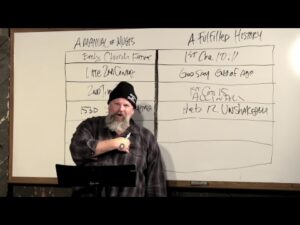
Shawn critiques traditional church discipline, questioning excommunication's relevance today. He advocates for understanding scripture contextually, emphasizing internal spiritual guidance over rigid practices.
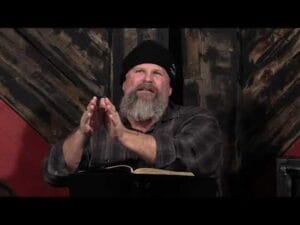
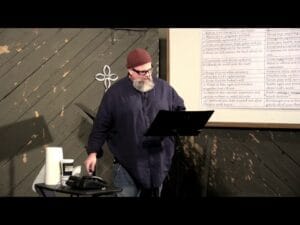
The teaching challenges traditional views by emphasizing personal faith over church doctrines, spiritual maturity through the Spirit, and understanding Jesus' historical context.

Shawn argues Jesus returned in 70 AD, citing apostolic writings. He emphasizes early Christians' belief in an imminent return, fulfilled by Jerusalem's fall, challenging futurist views.

Shawn McCraney promotes open faith discussions, opposes tithing, emphasizes financial transparency, critiques religious financial practices, and advocates for authentic, contextual biblical understanding and personal spiritual freedom.

Apostles expected Jesus' return within a generation, based on His teachings. Misinterpretations cause confusion. Early Christians saw it as imminent, per Hebrews, 1 John.
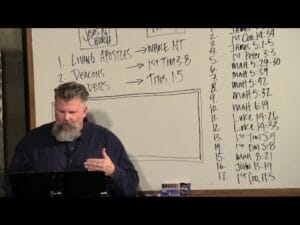
Shawn teaches that the New Testament Church was founded on Apostolic leadership with Christ as the cornerstone, emphasizing spiritual over institutional faith, and critiques selective scripture interpretation, advocating for Spirit-guided modern application.

Shawn McCraney teaches Jesus' return occurred by 70 AD, fulfilling Matthew 24. This view liberates faith from tradition, seeing "end of the world" as era's end, not physical.

Shawn teaches that traditional church practices are outdated, advocating for personal faith over organized religion, fulfilled prophecies, and internalized divine laws.

Shawn emphasizes a subjective faith, guided by the Spirit, with God's laws on hearts, contrasting traditional views, advocating for authentic living in the New Covenant age.
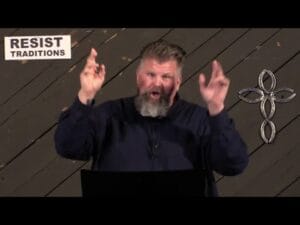
Shawn advocates for transparency in religious communities, critiques secretive practices, and emphasizes adapting to societal changes. He promotes love, truth, and reform, warning against financial focus and false authority.

The teaching critiques Sola Scriptura, advocating for Sola Spiritus, emphasizing the Holy Spirit's role over rigid doctrine, promoting personal faith and unity through love.
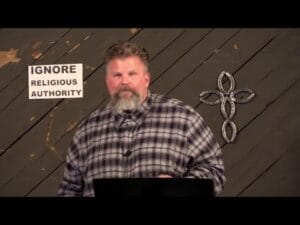
The teaching contrasts true leadership with management, urging Spirit-led leaders to challenge norms. It critiques religious practices, advocating for change and spiritual well-being.

Christianity involves re-evaluating Bible beliefs; NT called OT scripture; Gospels written post-Jesus; Bible's formation was gradual; inerrancy is debated; Reformation led by Luther emphasized Sola scriptura, rejecting papal authority.

Shawn advocates for faith in Christ free from religious demands, emphasizing personal spiritual liberty, critiquing traditional church practices, and encouraging open dialogue.

Christianity transcends politics, societal norms, and national identity, focusing on personal faith in Jesus. It warns against conflating faith with political agendas.
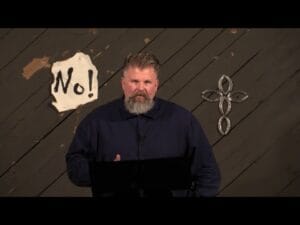
Shawn critiques religious institutions, urging freedom in Christ, rejecting authority-based teachings like tithes, and promotes critical examination of beliefs at CAMPUS.

Christianity transcends cultural labels, emphasizing personal faith over systems. Misunderstandings arise from preconceived notions. All expressions can be "Christian" if they inspire faith.
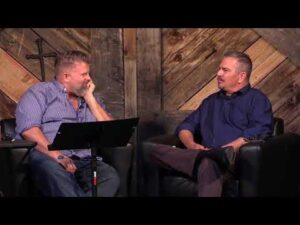
Script currently unavailable.